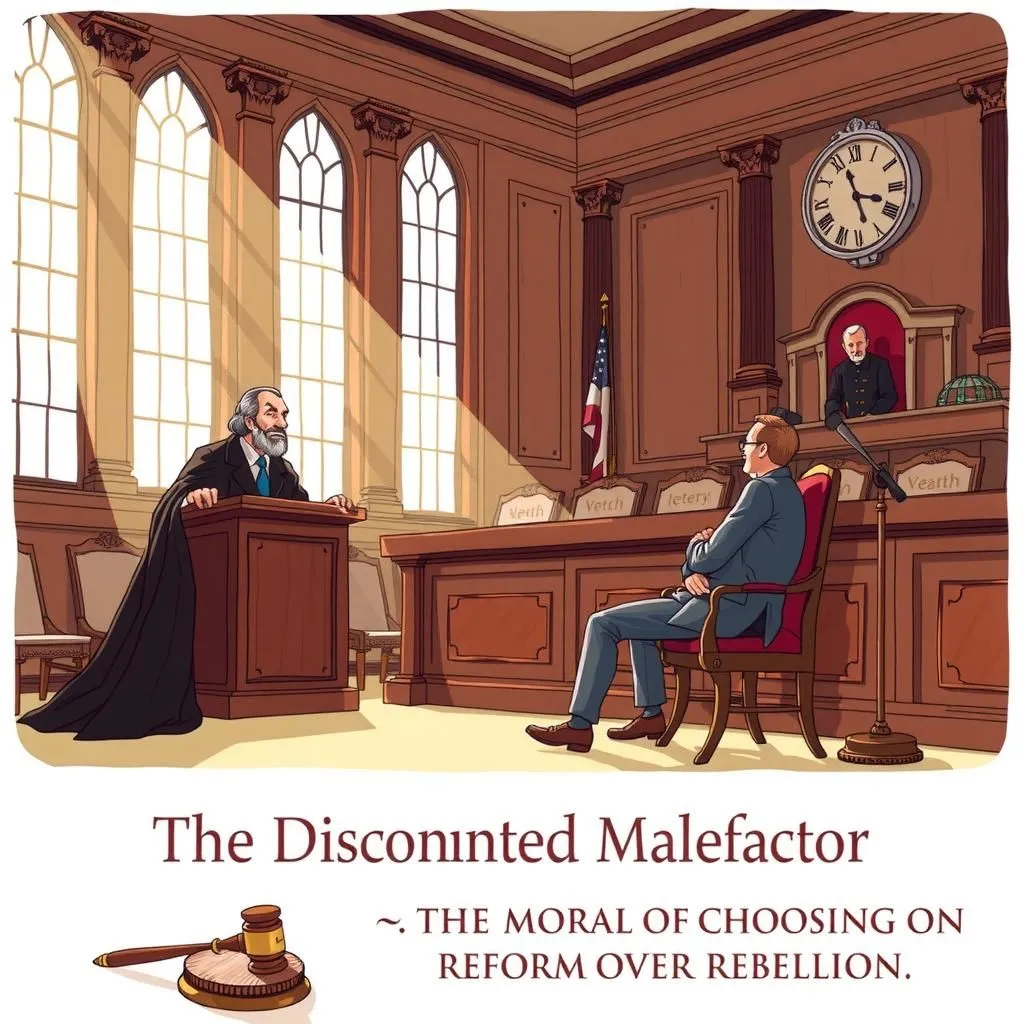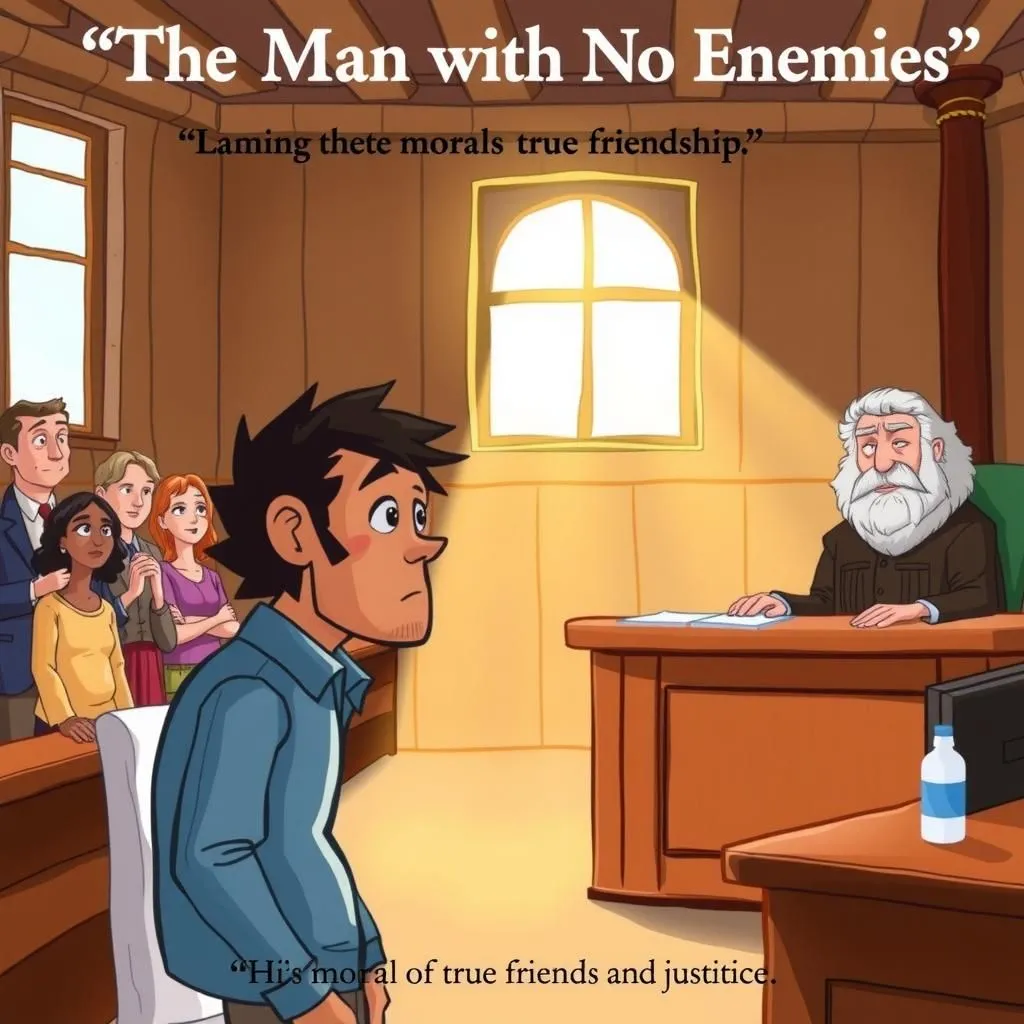
The Discontented Malefactor
In the unique moral story "The Discontented Malefactor," a judge sentences a criminal to three years in prison and attempts to impart a lesson on the drawbacks of crime and the benefits of reform. The malefactor, uninterested in reformation, humorously requests to extend his sentence to ten years in exchange for skipping the moral lecture, showcasing a clever twist in this concise moral story. This short story with moral lessons highlights the complexities of human nature and the resistance to change, making it a thought-provoking bedtime moral story.


